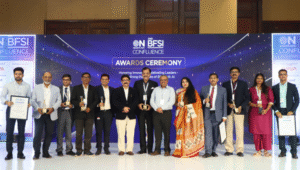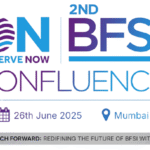AI Driving Futuristic Wave in Indian Education — Perspective or Prejudice?

While there is hype about internationalization in the education realm, AI and Automation are gaining momentum in the Indian education system, and other noticeable shifts are pushing Indian education towards a futuristic approach. Technology occupies a pivotal role in this evolution, facilitating the adoption of digital learning platforms, virtual classrooms, and collaborative research endeavors.
Supporting the widespread development, Statista’s market forecast projects a staggering 244 million online learners in India by the end of 2027, which shows how technology can be a change maker in the growth plans.
Personalized learning has also received traction after technological implementation. Today, there are adaptive learning software and AI algorithms that can analyze student’s performance and curate learning courses.
Along the same line, Dr. Sugant R., Dean – School of Management & School of Economics and Commerce, CMR University expressed his views on futuristic education and said, “In my view, futuristic education needs to focus on three key factors – interdisciplinary, Technology, and transferable skills. These three factors play a key role as you prepare the students for careers that don’t exist. Irrespective of the stream one chooses, the curriculum must be built on these three factors’ foundation.”
As we crystal gaze into the future, the scene is totally hazy, unlike any time in the past. With changes happening at breakneck speed, envisioning the future is like trying to find your way through a maze blindfolded. However, academicians have the unenviable task of not only predicting but also preparing the students for the future.”
Highlighting the role of collaboration in academics, Dr Sugant commented “In this context, collaborations play a key role. All the institutions will not have expertise in all the areas. Instead of investing and reinventing, the institutions should seek collaborations with national and international institutions, which can be a win-win for both institutions.”
















